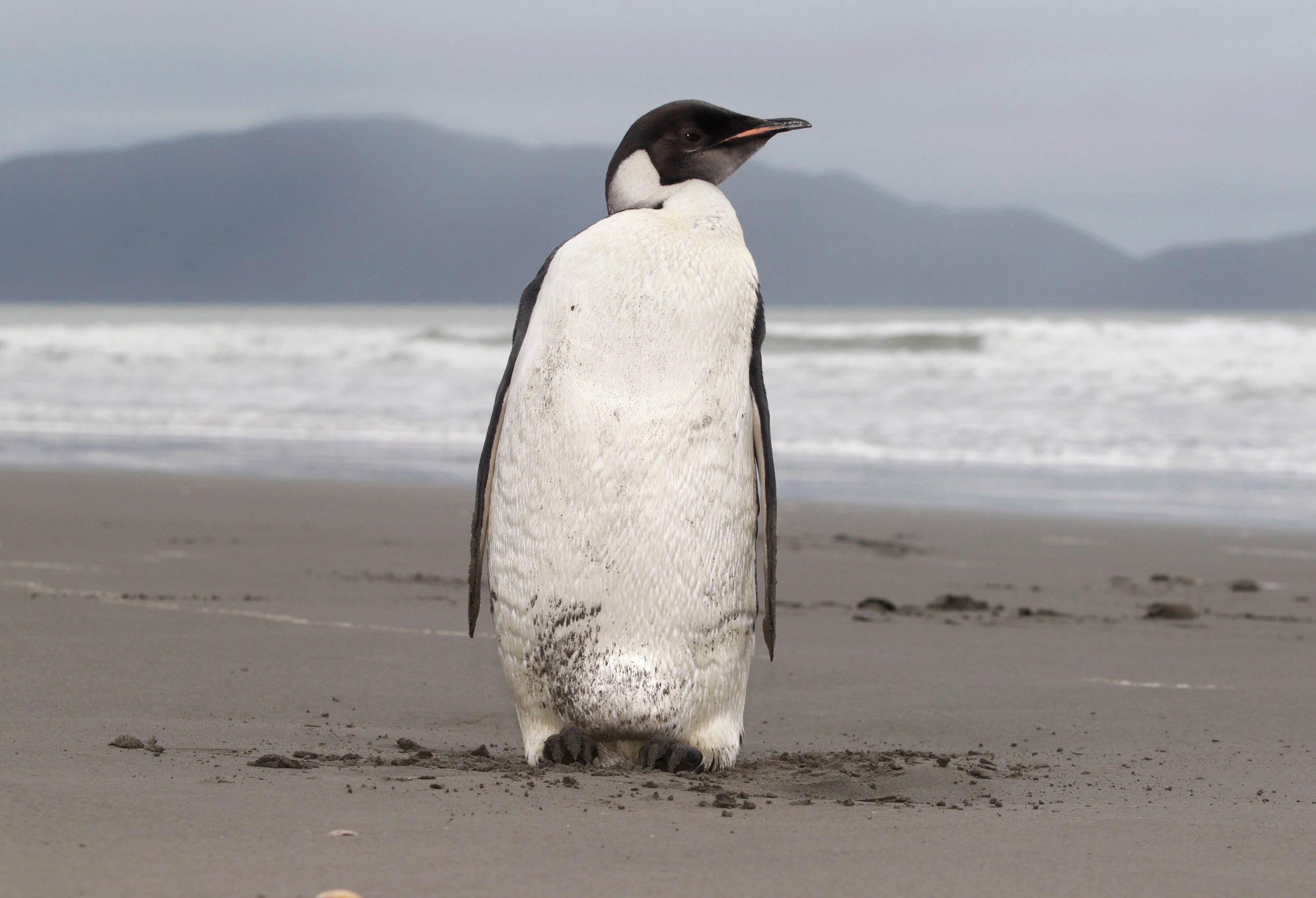Emperor penguins are running out of ice to breed on
‘We have never seen emperor penguins fail to breed at this scale in a single season’

The loss of sea ice in Antarctica is threatening over 90 per cent of the emperor penguin colonies as new research finds that none of the chicks born last year in one region of the continent survived.
Over 90 per cent of Emperor Penguin colonies in Antarctica are on the verge of a potential collapse by the end of the century due to the excessive loss of sea ice driven by the climate crisis, researchers have found.
The alarming rate of the crisis is due to an unprecedented breeding failure sparked by the loss of sea ice in the critical region, said the study, conducted by researchers from the British Antarctic Survey and published on Thursday in the journal Communications Earth & Environment.
The research focused on the central and eastern Bellingshausen Sea, where satellite images showcased the absence of sea ice at breeding sites well before chicks could develop their waterproof feathers, leading to an almost complete failure of breeding among emperor penguin colonies.
“We have never seen emperor penguins fail to breed at this scale in a single season,” said Peter Fretwell, the lead author of the study.
“The loss of sea ice in this region during the Antarctic summer made it very unlikely that displaced chicks would survive.”
“We know that emperor penguins are highly vulnerable in a warming climate, and current scientific evidence suggests that extreme sea ice loss events like this will become more frequent and widespread,” Dr Fretwell said.
Emperor penguins are heavily reliant on stable sea ice, particularly “land-fast” ice attached to the shore, for their breeding cycle, the study noted.
These penguins lay eggs during the Antarctic winter, from May to June, and the eggs hatch after a 65-day period. However, the chicks do not fledge until summer, between December and January.
The loss of sea ice this year, which occurred earlier than usual in the breeding season, has left these vulnerable chicks with insufficient time to develop and survive.
Antarctica has experienced a steady decline in sea ice over recent years, with the four lowest extents recorded between 2016 and 2022.
The years 2021-22 and 2022-23 saw the lowest sea ice extents in the 45-year satellite record.
In the central and eastern Bellingshausen Sea, the loss of sea ice reached an extreme level, with a complete loss of sea ice observed in November 2022.
The research focused on five recently discovered emperor penguin colonies: Rothschild Island, Verdi Inlet, Smyley Island, Bryan Peninsula and Pfrogner Point.
These colonies had shown consistency in returning to the same breeding sites annually. However, the study revealed a dire situation, with no indication of chicks surviving in four out of these five colonies, highlighting the severity of the crisis.
“The sea ice extent in Antarctica is still far below all previous records for this time of year. In this period where oceans are freezing up, we’re seeing areas that are still, remarkably, largely ice-free,” said Dr Caroline Holmes, a polar climate scientist at the British Antarctic Survey.
“The recent years of tumbling sea ice records and warming of the subsurface Southern Ocean point strongly to human-induced global warming exacerbating these extremes.”
The study's findings underscore the critical link between sea ice loss and the potential collapse of entire ecosystems, the authors said.
“Climate change is melting sea ice at an alarming rate. It is likely to be absent from the Arctic in the 2030s – and in the Antarctic, the four lowest sea ice extents recorded have been since 2016,” said Dr Jeremy Wilkinson, a sea ice physicist at the British Antarctic Survey.
“It is another warning sign for humanity that we cannot continue down this path; politicians must act to minimise the impact of climate change. There is no time left.”
Subscribe to Independent Premium to bookmark this article
Want to bookmark your favourite articles and stories to read or reference later? Start your Independent Premium subscription today.

Join our commenting forum
Join thought-provoking conversations, follow other Independent readers and see their replies